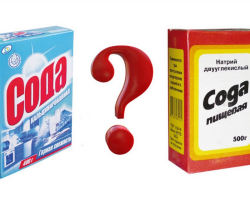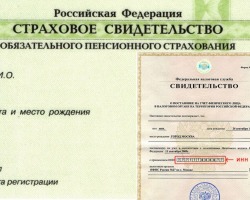You can make good money on devaluation. Read in detail in the article.
Content
- What is the devaluation of the national currency: definition
- What is the devaluation of the Russian, Belarusian ruble, tenge, hryvnia in simple language?
- What is a moderate and explosive devaluation of the national currency?
- What threatens the devaluation of the ruble to the population, the country's budget: consequences
- How will the devaluation of the ruble, national currency for a loan, mortgage, prices for goods, services, real estate?
- Is it profitable to take a loan during devaluation?
- What to do with the devaluation of the ruble, how to save money?
- What are the words of devaluation, denomination, revaluation, nullification, emission, inflation: definition, what is the similarity and difference?
- Inflation and devaluation: comparison, interconnection
- What is the difference between devaluation and default?
- Video: The devaluation of the ruble in 2018 in Russia. How real?
We often hear in the news on TV, in banks and in a conversation between people, different economic terms.
- If there is no special education, then sometimes even after a detailed explanation, it is difficult to understand what this or that economic definition means.
- But the meaning of some words needs to be known in order to be aware of financial affairs in the country, and in order to know the consequences of certain economic processes for the country as a whole and for each person.
- Consider all economic terms in more detail in this article.
What is the devaluation of the national currency: definition

Previously, ordinary people were well aware of the words " inflation" and " default". It was immediately clear that if in the news they talk about default, you need to withdraw money from the accounts and transfer to currency. There are many new definitions now, for example, the devaluation of the national currency. What does this mean? Here is the definition:

What is the devaluation of the Russian, Belarusian ruble, tenge, hryvnia in simple language?

In other words or simple language, devaluation is a process that leads to a decrease in the exchange rate of the foreign currency of foreign states.
- For example, if 1 dollar in our country is 41 rubles (conditional values), then with the devaluation of the national currency it will mean reduction of the ruble, that is, 1 dollar will be equal to 43.5 rubles or other value, but above 41 rubles.
- As a result, we can say that with the current devaluation in the country, you can buy for the same amount of rubles less foreign money.
The devaluation also acts on currency in other countries, namely, the reduction of the reduction of, for example, the Belarusian ruble, tenge or hryvnia will occur.
What is a moderate and explosive devaluation of the national currency?

Moderate devaluation - This is a process when the reduction of the national currency occurs, but slowly, during a certain period of time for several points. For example, at the beginning of the year, 33 rubles were given in one dollar (conditional values). During the year, there were small changes in the country's economy, and the rate became a little different: 1 dollar \u003d 36.5 rubles. A moderate ruble devaluation occurred within 12 months.
Explosive devaluation - This is a real currency and financial crisis in the country. Often this happens with a compressive budget and a confident falling economy, especially if an artificial strengthening of the national currency occurs. It seems that this is impossible - the economy is falling, the budget is less and less every year, and the ruble is strengthened. But, if the ruble was supported artificially, then all this will lead to explosive devaluation.
What threatens the devaluation of the ruble to the population, the country's budget: consequences

The economy is an accurate science, and its fluctuations are primarily felt by ordinary citizens. The nullification of the national currency excites just ordinary people who have small savings in banks or at home “under the mattress”. What threatens the devaluation of the ruble? The consequences can be like that:
- The purchase of goods abroad is more expensive, since the national currency becomes cheap, and foreign, on the contrary, is getting more expensive.
- Industry will suffer, since technological equipment, consumables, components and even raw materials, many enterprises are purchased abroad. They will have to increase the prices of final products for the population. Accordingly, together with enterprises, the population will also suffer - end consumers.
- Domestic enterprises will not be interested in acquiring new equipment and quality raw materialssince all this will have to spend more cash. Production will work, but the production of products will be significantly reduced, and quality and competitiveness will fall. As a result, the industry is backward, there are few income and tax deductions, which means there is no budget in the country.
- The plunder of national resources. Oil and gas are pumped out and spent that enterprises can produce something worthwhile and high-quality, and the profit becomes less and less, since the end consumer is not ready to purchase goods at high prices.
Experts claim that devaluation will help to remove the country out of the crisis with import substitution. But it also becomes unrealistic, since to create a high -quality final product, enterprises need good raw materials and modern equipment, which is produced abroad and sold for foreign currency.
How will the devaluation of the ruble, national currency for a loan, mortgage, prices for goods, services, real estate?

Devaluation - This is the depreciation of the official national currency. How will this process affect loans and mortgages? Such a question worries ordinary people, because it is precisely the ordinary citizens that always suffer from the economic crisis. It is worth noting the following:
- If you managed to take money on credit before the devaluation, you will win.
- The ruble is depreciated, respectively, salaries are growing, as employers have to go to this step due to the rapid increase in prices.
- Often, when a crisis begins in the country, people try to invest their money in real estate, since its value will only grow during the devaluation.
Of course, if you purchase, for example, an apartment, with your own money, then it is beneficial in any case. Banks include all kinds of risks in advance, especially if they are associated with changes in the economy. This is what it is:
- Financial organizations make a note in a loan agreementthat they have the right to make an increase in the annual loan rate in the event of a decrease in the ruble.
- Borrowers often do not pay attention For such a note or consider it insignificant.
- As a result, this greatly complicates life, since the rate increases significantly, and the borrower often does not even have the opportunity to pay under a loan agreement with debts.
As a result, the bank can confiscate the collateral, and the borrower is left without money and without housing. In general, during devaluation, the national currency is depreciated, and prices for goods, services and real estate are rising. Borrowers will win only if a fixed rate is registered in the loan agreement and there are no drops in case of depreciation of the ruble.
Is it profitable to take a loan during devaluation?

Devaluation - This is an unpleasant process, both for an entire country and for individual citizens. But from this you can benefit from this. For example, take a loan, but only at the beginning of this economic crisis.
Important: Be sure to pay attention to different notes in the loan agreement, since you will win if the loan rate is fixed.
After the devaluation, the money will depreciate, and repaying the debt will be much easier. For example, 100,000 rubles can have the same purchasing ability as 50,000 rubles or even less. Of course, buying a TV or a refrigerator on credit, it is unlikely that you can win a lot. But to purchase a car or apartment on credit for 3-5 years or more, the economic crisis is an ideal time.
Remember: It is profitable to take a loan during the depreciation of money, it is in rubles. If you take a loan in dollars, you can lose and will have to return much more, since the foreign currency course will grow rapidly.
But banks are well aware of what the economic crisis is, and therefore, with the onset of devaluation, they almost do not issue loans. Therefore, it is important to calculate in advance when this process begins, although even specialists in the economic sphere can not always do this.
What to do with the devaluation of the ruble, how to save money?

You can save your money when the ruble devaluation can only be invested in the purchase of real estate or foreign currency. During the period of depreciation of the national currency, real estate is getting more expensive and the exchange rate of the dollar and other currency rises. Therefore, you need to have time at the very beginning of the economic crisis, for example, a real estate object, the cost of which after an economic crisis will increase several times.
What are the words of devaluation, denomination, revaluation, nullification, emission, inflation: definition, what is the similarity and difference?
Determining the word devaluation was given above. Now let's look at what other concepts related to the economic crisis mean. After all, we often hear them on TV, but what they mean, many people do not know.

Denomination Hyperinflation is usually preceded.
- In simple words, during this process there is a change in the face value of the money when old money acts together with the new ones, but they are gradually removed from the turnover.
- Such a reform of money is needed to stabilize the financial system and improve the economy in the country.

Revaluation - This is the polar devaluation process.
- If before the revaluation the dollar had the cost, for example, 40 rubles (conditional value), then after this process, for 1 dollar it will be necessary to pay, for example, only 35 rubles.
- Such a process is beneficial to importers that can bring goods at lower prices than in the local market. At the same time, they will sell goods at higher prices than in their market.
- But the rise in the cost of the national currency is an unprofitable process for exporters, as the cost of manufactured products increases.

Nullification It is carried out during rapid inflation, when the money signs of a small face value are already irrelevant.
- Usually a date is set in advance, after which the banknotes of a particular face value will not have the strength.
- For example, in the Republic of Belarus, since July 2015, they stopped issuing money with a face value of 50 rubles. Since September of the same year, they have not been accepted in stores and other retail outlets. Since June next year, they have not been accepted to exchange and completely lost their strength.

Issue of money In Russia, only Cetrobank has the right to conduct. The release of new banknotes and securities is necessary to replace worn bills or economic development.

Inflation In simple words, this is a decrease in the purchasing power of funds, manifested in a rapid increase in prices. As a result, the goods in the country were as much as it was before inflation, and the population will need more money to purchase it. Usually, the salary does not increase during inflation, so citizens feel the prices of prices.
The difference between all these terms is obvious, since each of them has its own meaning. The similarity is only in one - all this applies to the economic situation in the country and is associated with the money turnover and the cash signs as a whole.
Inflation and devaluation: comparison, interconnection

Devaluation - This is a rapid decrease in the course of the national currency in relation to the course of foreign currency.
Inflation - A more complex process, as a result of which the currency is growing in price, and after a while for the same amount of money you can buy less goods and services. During inflation, prices are growing rapidly and “saving” citizens are “melting”.
Relationship Between these two concepts are as follows:
- The devaluation that acts today contributes to inflation, which will be tomorrow.
- Therefore, if devaluation is announced in the country, then there will be inflation tomorrow.
- Stop explosive devaluation is much easier than sluggish inflation.
Almost all economists are sure that you should not be afraid of devaluation, in contrast to inflation, which “eats” all the accumulations of people.
What is the difference between devaluation and default?

During the default, no obligations are fulfilled, which is why it is impossible to pay a loan or interest. During devaluation, a currency course in relation to the currencies of developed countries is reduced. Both of these concepts indicate an economic crisis, but default is a more “painful” process, both for the country as a whole and for individual citizens.
Now you know the most basic economic terms and what means this or that process for an ordinary person. But do not panic immediately if a particular process is announced in the country. Calmly assess the situation and find benefits for yourself.
Video: The devaluation of the ruble in 2018 in Russia. How real?







